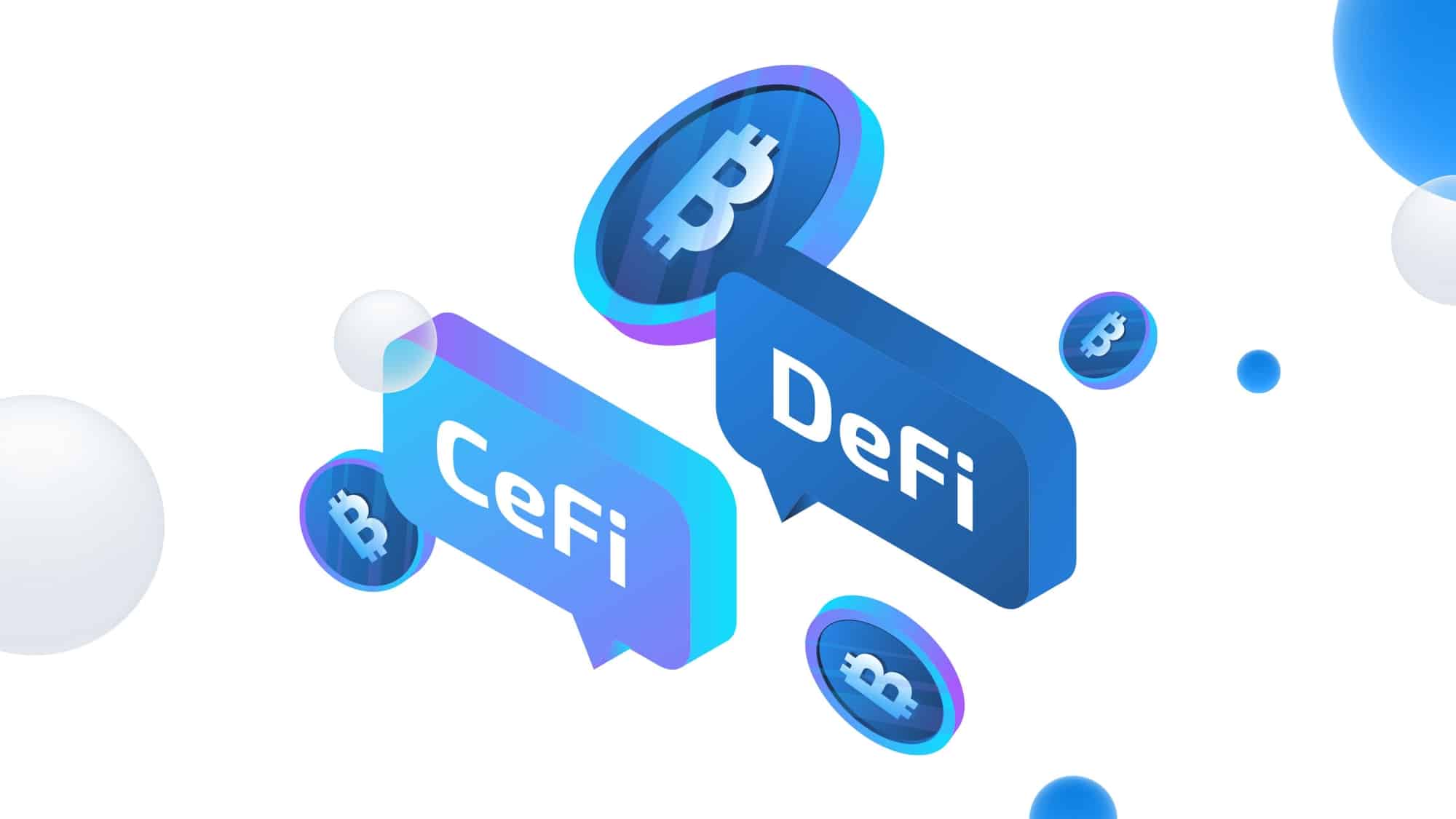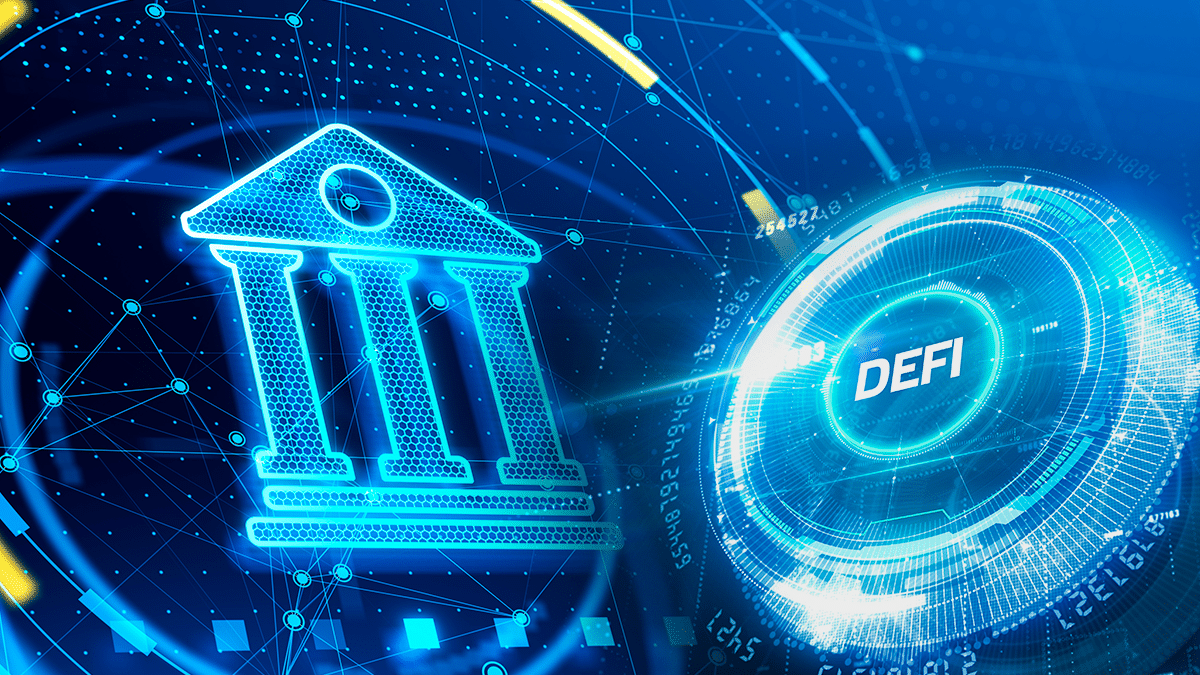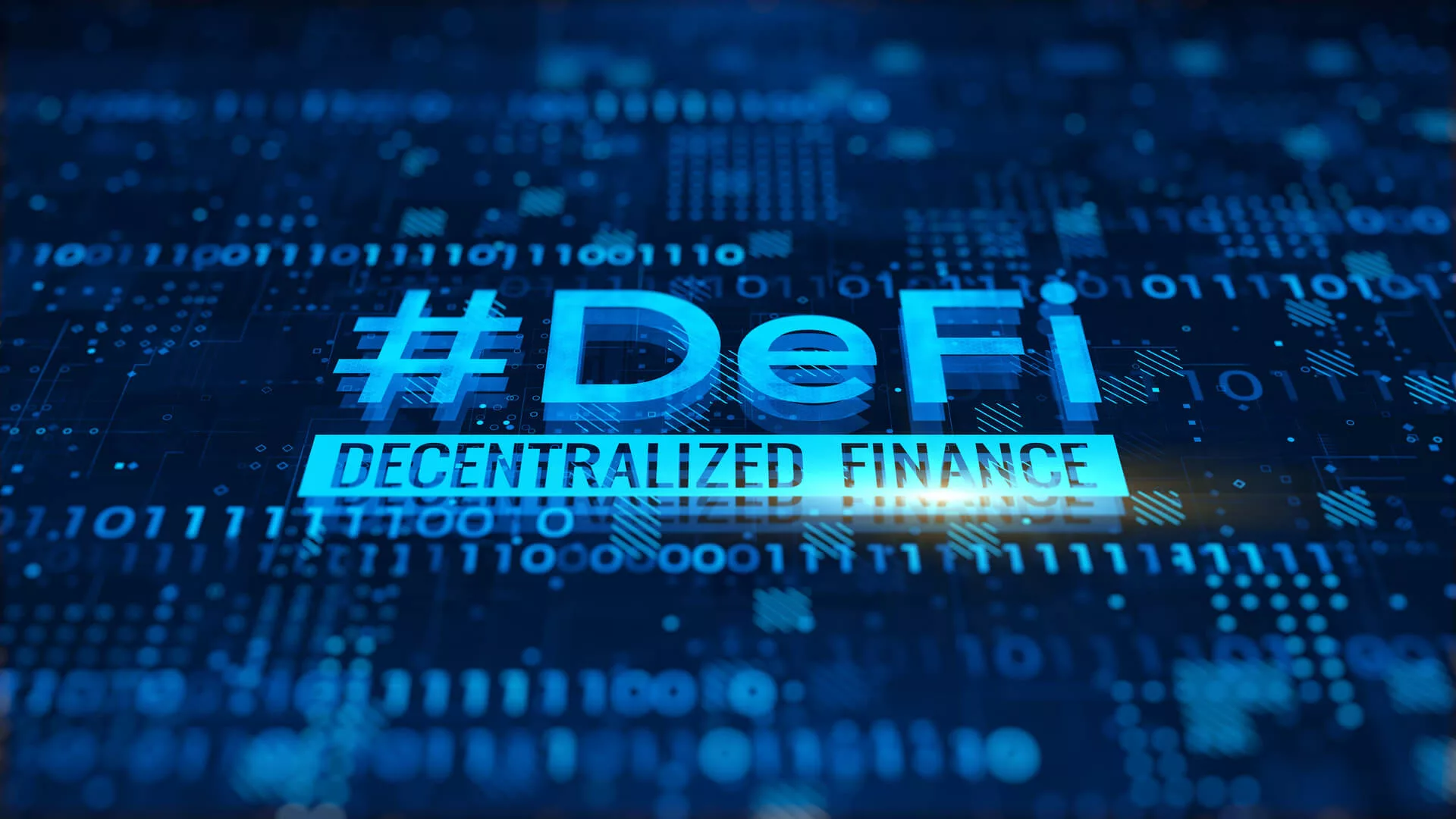What is DeFi (Decentralized Finance) and How to Invest in It?
With the technologies of the age, many transactions can be carried out in many areas without the need for the presence of a central authority. Yes, in fact, all of us, including me, want more freedom in everything. In financial matters, I would like you to know that the obligation to stick to a bank and do business with the places determined by it is considered a serious proof that freedom in this field is limited.
Today’s technological systems help us do business without being dependent on these financial authorities. If I open the subject a little more for you to understand better; It works with banks to make withdrawals, loans, deposits and investments in various areas through the classical financial system that we are all accustomed to. Since most people do not have any other option, they may have to carry out these transactions through banks.
What is DeFi (Decentralized Finance)?

DeFi, which has recently entered our lives, is actually an acronym. De: “Decentralized” and Fi: “Finance” are abbreviations. With this decentralized structure, you can join this system over the internet without applying to any financial institution.
Of course, the fact that it has a decentralized structure does not mean that you will not be subject to some contracts. Of course, there are some situations that are legally binding. Now, with the subheadings I will present to you, you will get a little more detailed information about DeFi.
What is DeFi (Decentralized Finance) Coin, What Does It Do?
DeFi stands for decentralized financial system, so what is the financial system represented here? I think this must be the first question that comes to your mind. There are cryptocurrencies that you can use in DeFi (Decentralized Finance). You should know that you need a DeFi wallet for these currencies as well.
In addition to being able to choose from the coins I mentioned, there are also Tokens. I can list some DeFi (Decentralized Finance) currencies that can be invested in as follows: Frax Share, Lido Dao, Rocket Pool, SushiSwap, PancakeSwap, Internet Computer, Uniswap.
What is DeFi (Decentralized Finance) Wallet, What Does It Do?
It is an electronic wallet that allows you to securely store your cryptocurrencies or crypto assets. Of course, it is also a wallet independent of the central financial authorities! We’re talking about a wallet that’s exclusive to its user and highly protected.
With this digital wallet, you can have the freedom to perform financial transactions from anywhere in the world where there is internet, and you can make your financial transactions as you wish and at the same time direct your investments.
What is DeFi (Decentralized Finance) Starking, What Does It Do?

DeFi Starking is the name of a system that resembles time deposit accounts opened in the traditional financial system based on banks. Of course, for this process, you must first choose a crypto currency through the system. Next, you need to buy stackable coins from the cryptocurrency platform of your choice.
Then, just like time deposit accounts, you should choose one of the 30-day, 90-day, or 120-day maturity options. There is a system that helps you with this part; APY stands for “Annual Interest Yield”, and by evaluating these annual rates, you can choose the maturity that seems most lucrative to you.
It will offer interest on the coins you deposit by proportioning the monthly APY percentages of the cryptocurrencies you will evaluate in the term you choose. There are two options to choose from in the Stack jobs you perform: locked and flexible. I would like to explain these two options for you:
Locked Stacking Operation:
In those classic deposit accounts we know, transactions cannot be made until the maturity day comes. Here, in the Lock Stack transaction, it means that you cannot make any transactions with your preferred coins before your term expires.
Flexible Stacking Processing:
In this process, as the name suggests, it means that you can act flexibly and perform transactions with your coins in your account at any time. As in the classical banking system, the earning rate of your Flexible Stack account is at lower levels. The important point you need to know and pay attention to is that each Coin accepts a limited amount of Stacks.
How to Invest in DeFi (Decentralized Finance)?
All financial systems that have emerged recently are promising. The reason for this is the diversification of the financial needs of the developing world. The opinion of all experts in the financial community is that DeFi (Decentralized Finance) will be an integral part of the financial system.
When the situation is analyzed in this way, it has become a fact accepted by all segments that cryptocurrencies and the blockchain technologies they are involved in are highly profitable investment instruments. If I elaborate on the subject: digital currencies, which exhibit very large transaction volumes today, use blockchain technology very well.
As these digital currencies multiply their value, companies increase their value to higher levels. To put it briefly, the share prices of these companies rise or can reach ceiling levels in certain periods. At this point, the undeniable fact makes cryptocurrency companies an unmissable opportunity for all investors. This system offers its users the opportunity to earn satisfactory income.
What are the Risks of DeFi (Decentralized Finance)?
DeFi (Decentralized Finance) offers good earning rates to its users. Although there is no central financial authority in this system, its users logically benefit from services similar to those offered by classical financial services. As in the classical finance system, DeFi (Decentralized Finance) has all the gains, as well as the risks. I am listing them so that you can be aware of these risks:
- Impermanent Loss: It is a risk inherent in the system of DeFi (Decentralized Finance). When you stake Tokens in a liquidity pool, it means that there is a possibility that you will lose some of your deposited Tokens if you want to withdraw your assets after the initial price changes when you buy.
- Regulatory Risk: States can enact new laws to streamline the changing system. While making your investment, you need to foresee whether it is at risk by the state and whether it will be closed by the state in the future.
- Software Risk: As you know, the digital world consists of coding. This risk describes the risks that may occur related to these codes I mentioned. At this point, it directly affects your investment in a vital way, and the size of the risk is really high. Codes written in connection with DeFi (Decentralized Finance) DApps can cause malicious people to contact your digital wallet.
- Token Risk: The risks of the Tokens you own in DeFi (Decentralized Finance); Smart contract security can vary depending on its liquidity and the projects and teams they depend on. There are a large number of tokens available in DeFi (Decentralized Finance). Among them, there are quite a lot of tokens with really low market caps. When making your investment, keep in mind that these risks associated with Tokens are significant and you should be wary of them.
See you in the next post,
Anil UZUN

